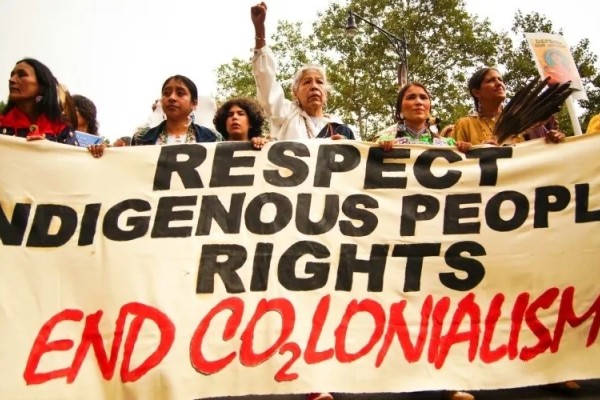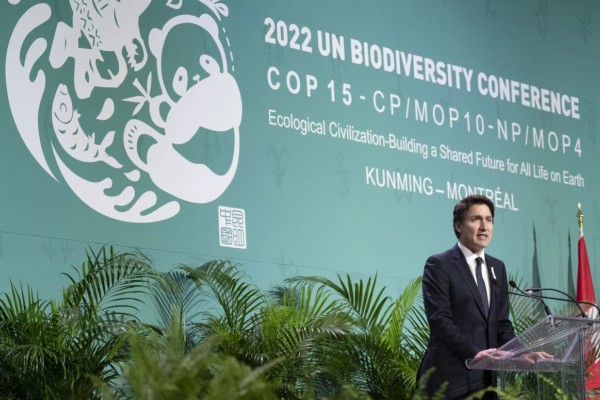-

Confronting racial (in)justice in the university and beyond
In this moment of global upheaval, and even as we acknowledge how much the political climate has been changed by anti-colonial and anti-racist movements, what would those who are bearing the brunt of our age’s most brutalizing forms of dispossession, disenfranchisement, wars, violence and ongoing genocides have to say of what we do in these institutions today?
-

Fossil fuel capitalism rewards John Horgan
When John Horgan announced that would be joining the board of a coal company, it was inevitable that some critical voices would be raised. Writing in the Prince George Citizen, John Steidle, was particularly sharp in his response, in which he made the observation that “If you actually worked for the people, I can guarantee you the corporate sector wouldn’t want to touch you with a ten foot pole.”
-

A gamechanger at the Royal Society of Canada
The Royal Society of Canada has historically been the national emblem of that impervious white wall of denial and racism. Yet, it has changed—it has brought in critical minds and challenging voices. Tanzanian-Canadian feminist sociologist, academic, and activist Dr. Sunera Thobani takes her place there now, recognized as one of the finest scholarly minds in the country.
-

Alberta tailings leak reveals the failures of Canada’s environmental assessment process
If Canada wants to build a truly sustainable economy, the federal and provincial governments must implement meaningful consultation measures, respect constitutional treaty rights, and ensure that companies comply with their environmental commitments. Without these changes, any Canadian move toward “sustainability” will occur at the level of branding, not action.
-

State-sanctioned violence in Peru and the role of Canadian mining
Canada’s embassy in Peru will no doubt continue to promote more Canadian mining investment in the country. But it should be made clear: when Canada chooses to promote mining in Peru, it is doing so knowing the reality of what these activities mean for people who are facing ongoing threats, intimidation, and state-sponsored violence.
-

Climate justice in so-called Canada
A coordinated movement between Indigenous peoples, settler environmentalists, organized labour, and many others is the precise opposite of an apocalyptic scenario. We think it’s the one thing that could bring us back from our current slide into climate collapse, colonial genocide, and extreme inequality, and towards a better world where we live in balance with land and life.
-

Science and decolonization: Keeping the debate on track
First Nations seem unusually well placed to challenge an exclusionary politics that withholds scientific power from the majority of those affected by it. The successes of these First Nations could lead to greater changes. Perhaps this is why the faux-partisan pundit classes seem so bent on distracting us with their interminable squabbling over how to divide the cake amongst themselves.
-

“The voice of Indigenous peoples is the real voice of nature”
Millions of dollars in funding for biodiversity preservation, conservation projects, and “nature-based solutions” have been announced at COP15 by states and philanthropic foundations alike. Yet as business delegates emphasized changing consumer behaviour as a critical condition of meeting lofty targets, a sliver of the market driving energy demand reflects a convoluted picture.
-

Trudeau hosts biodiversity summit while promising more support for mining industry
The UN itself has condemned Canada’s treatment of Indigenous land defenders and called on the government to stop criminalizing their activities in defence of Indigenous cultures and ecological integrity. These actions are especially important to consider in the midst of COP15, as Indigenous territories account for roughly 22 percent of the world’s land but hold 80 percent of its biodiversity.
-

Human rights tribunal rules Indigenous compensation plan insufficient
While the Trudeau government promised that its compensation plan would be a “historic” step forward in the relationship between Ottawa and Indigenous peoples, the rejection by the CHRT shows that Ottawa is not even willing to meet the responsibilities it imposes on itself. The dissonance between Ottawa’s rhetoric and its actions needs to be reconciled.



